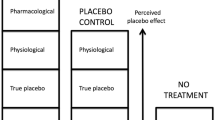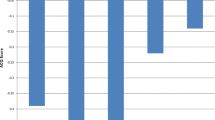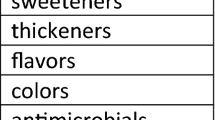Abstract
Cough is a unique symptom because, unlike sneeze and other symptoms, it can be under voluntary control and this complicates clinical trials on cough medicines. All over-the-counter cough medicines (OTC) are very effective treatments because of their placebo effect. The placebo effect is enhanced by expectancy related to advertising, brand, packaging, and formulation. This placebo effect creates a problem for the conduct of clinical trials on OTC cough medicines that attempt to demonstrate the efficacy of a pharmacological agent above that of any placebo effect. Up to 85% of the efficacy of some cough medicines can be attributed to a placebo effect. The placebo effect apparent in clinical trials consists of several components: natural recovery, regression of cough response toward mean, demulcent effect, effect of sweetness, voluntary control, and effects related to expectancy and meaning of the treatment. The placebo effect has been studied most in the pain model, and placebo analgesia is reported to depend on the activation of endogenous opioid systems in the brain; this model may be applicable to cough. A balanced placebo design may help to control for the placebo effect, but this trial design may not be acceptable due to deception of patients. The placebo effect in clinical trials may be controlled by use of a crossover design, where feasible, and the changes in the magnitude of the placebo effect in this study design are discussed.





Similar content being viewed by others
References
Eccles R, Morris S, Jawad M (1992) Lack of effect of codeine in the treatment of cough associated with acute upper respiratory tract infection. J Clin Pharm Ther 17:175–180
Eccles R (1996) Codeine, cough and upper respiratory infection. Pulm Pharmacol Ther 9:293–297
Freestone C, Eccles R (1997) Assessment of the antitussive efficacy of codeine in cough associated with common cold. J Pharm Pharmacol 49:1045–1049
Bolser DC, Davenport PW (2007) Codeine and cough: an ineffective gold standard. Curr Opin Allergy Clin Immunol 7:32–36
Oken BS (2008) Placebo effects: clinical aspects and neurobiology. Brain 131:2812–2823
Moerman D (2002) Deconstructing the placebo effect and finding the meaning response. Ann Intern Med 136:471–476
Stewart-Williams S, Podd J (2004) The placebo effect: dissolving the expectancy versus conditioning debate. Psychol Bull 130:324–340
Benedetti F (2008) Mechanisms of placebo and placebo-related effects across diseases and treatments. Annu Rev Pharmacol Toxicol 48:33–60
Cannon W (1929) Bodily changes in pain hunger, fear, rage: an account of recent research into the function of emotional excitement. Appleton-Century-Crofts, New York
Eccles R (2002) The powerful placebo in cough studies. Pulm Pharmacol Ther 15:303–308
McEwen BS (2007) Physiology and neurobiology of stress and adaptation: central role of the brain. Physiol Rev 87:873–904
Zubieta JK, Bueller JA, Jackson LR, Scott DJ, Xu Y, Koeppe RA, Nichols TE, Stohler CS (2005) Placebo effects mediated by endogenous opioid activity on mu-opioid receptors. J Neurosci 25:7754–7762
Wager TD, Scott DJ, Zubieta JK (2007) Placebo effects on human mu-opioid activity during pain. Proc Natl Acad Sci USA 104:11056–11061
Benedetti F (1996) The opposite effects of the opiate antagonist naloxone and the cholecystokinin antagonist proglumide on placebo analgesia. Pain 64:535–543
Amanzio M, Benedetti F (1999) Neuropharmacological dissection of placebo analgesia: expectation-activated opioid systems versus conditioning-activated specific subsystems. J Neurosci 19:484–494
Colloca L, Benedetti F (2005) Placebos and painkillers: is mind as real as matter? Nat Rev 6:545–552
Rostami-Hodjegan A, Abdul-Manap R, Wright CE, Tucker GT, Morice AH (2001) The placebo response to citric acid-induced cough: pharmacodynamics and gender differences. Pulm Pharmacol Ther 14:315–319
Lee PC, Jawad MS, Hull JD, West WH, Shaw K, Eccles R (2005) The antitussive effect of placebo treatment on cough associated with acute upper respiratory infection. Psychosom Med 67:314–317
Moulton C, Pennycook AG (1994) Relation between Glasgow coma score and cough reflex. Lancet 343:1261–1262
Hutchings HA, Eccles R, Smith AP, Jawad M (1993) Voluntary cough suppression as an indication of symptom severity in upper respiratory tract infections. Eur Respir J 6:1449–1454
Choudry NB, Harrison AJ, Fuller RW (1992) Inhibition of gustatory rhinorrhea by intranasal ipratropium bromide. Eur J Clin Pharmacol 42:561–562
Eccles R (2006) Mechanisms of the placebo effect of sweet cough syrups. Respir Physiol Neurobiol 152:340–348
Jain R, Mukherjee K, Singh R (2004) Influence of sweet tasting solutions on opioid withdrawal. Brain Res Bull 64:319–322
Pecina S, Smith KS, Berridge KC (2006) Hedonic hot spots in the brain. Neuroscientist 12:500–511
Lewkowski MD, Young SN, Ghosh S, Ditto B (2008) Effects of opioid blockade on the modulation of pain and mood by sweet taste and blood pressure in young adults. Pain 135:75–81
McKemy DD (2005) How cold is it? TRPM8 and TRPA1 in the molecular logic of cold sensation. Mol Pain 1:16
Voets T, Owsianik G, Nilius B (2007). TRPM8. Handb Exp Pharmacol (179):329–344
Bodding M, Wissenbach U, Flockerzi V (2007) Characterisation of TRPM8 as a pharmacophore receptor. Cell Calcium 42(6):618–628
Laude EA, Morice AH, Grattan TJ (1994) The antitussive effects of menthol, camphor and cineole in conscious guinea-pigs. Pulm Pharmacol 7:179–184
Morice AH, Marshall AE, Higgins KS, Grattan TJ (1994) Effect of inhaled menthol on citric acid induced cough in normal subjects. Thorax 49:1024–1026
Ernst E, Resch KL (1995) Concept of true and perceived placebo effects. BMJ 311:551–553
Kienle G, Kiene H (1996) Placebo effect and placebo concept: a critical methodological and conceptual analysis of reports on the magnitude of the placebo effect. Altern Ther Health Med 2:39–54
Hutchings HA, Morris S, Eccles R, Jawad M (1993) Voluntary suppression of cough induced by inhalation of capsaicin in healthy volunteers. Respir Med 87:379–382
Lee P, Cotterill-Jones C, Eccles R (2002) Voluntary control of cough. Pulm Pharmacol Ther 15:317–320
Evans D (2003) Placebo. The belief effect. Harper Collins, London
Moerman D (2002) Meaning, medicine and the ‘Placebo effect’. Cambridge University Press, Cambridge
Benedetti F, Amanzio M (1997) The neurobiology of placebo analgesia: from endogenous opioids to cholecystokinin. Prog Neurobiol 52:109–125
Hutchings HA, Eccles R (1994) The opioid agonist codeine and antagonist naltrexone do not affect voluntary suppression of capsaicin induced cough in healthy subjects. Eur Respir J 7:715–719
Simonyan K, Saad ZS, Loucks TM, Poletto CJ, Ludlow CL (2007) Functional neuroanatomy of human voluntary cough and sniff production. Neuroimage 37:401–409
Fava M, Evins AE, Dorer DJ, Schoenfeld DA (2003) The problem of the placebo response in clinical trials for psychiatric disorders: culprits, possible remedies, and a novel study design approach. Psychother Psychosom 72:115–127
Eccles R, Loose I, Jawad M, Nyman L (2003) Effects of acetylsalicylic acid on sore throat pain and other pain symptoms associated with acute upper respiratory tract infection. Pain Med 4:118–124
Eccles R, Jawad MS, Jawad SS, Angello JT, Druce HM (2005) Efficacy and safety of single and multiple doses of pseudoephedrine in the treatment of nasal congestion associated with common cold. Am J Rhinol 19:25–31
Eccles R, Eriksson M, Garreffa S, Chen SC (2008) The nasal decongestant effect of xylometazoline in the common cold. Am J Rhinol 22:491–496
Eccles R, Jawad M, Jawad S, Ridge D, North M, Jones E, Burnett I (2006) Efficacy of a paracetamol-pseudoephedrine combination for treatment of nasal congestion and pain-related symptoms in upper respiratory tract infection. Curr Med Res Opin 22:2411–2418
Miller FG, Wendler D, Swartzman LC (2005) Deception in research on the placebo effect. PLoS Med 2:e262
Waring DR (2008) The antidepressant debate and the balanced placebo trial design: an ethical analysis. Int J Law Psychiatry 31:453–462
Clayden JR, Bell JW, Pollard P (1974) Menopausal flushing: double-blind trial of a non-hormonal medication. Br Med J 1:409–412
Swartzman LC, Burkell J (1998) Expectations and the placebo effect in clinical drug trials: why we should not turn a blind eye to unblinding, and other cautionary notes. Clin Pharmacol Ther 64:1–7
Thomson R (1982) Side effects and placebo amplification. Br J Psychiatry 140:64–68
Author information
Authors and Affiliations
Corresponding author
Rights and permissions
About this article
Cite this article
Eccles, R. Importance of Placebo Effect in Cough Clinical Trials. Lung 188 (Suppl 1), 53–61 (2010). https://doi.org/10.1007/s00408-009-9173-3
Received:
Accepted:
Published:
Issue Date:
DOI: https://doi.org/10.1007/s00408-009-9173-3




